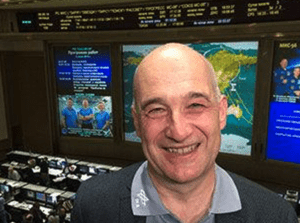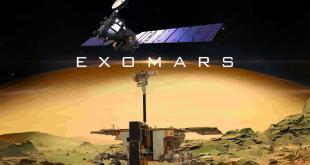On 11 November 2021, German ESA astronaut Matthias Maurer and his NASA colleagues Kayla Barron, Raja Chari and Thomas Marshburn launched to the International Space Station (ISS). As part of his Cosmic Kiss mission, Maurer will spend around six months on the space station and conduct numerous experiments.
The German Aerospace Center is involved in the mission in a number of ways. In a conversation with Andreas Schepers, Cosmic Kiss mission manager Volker Schmid from the Space Agency at DLR sheds light on some of the more than 100 experiments and reviews the first 100 days of the mission.
Schmid begins by explaining the challenges to mission planning and launch posed by the Corona pandemic. The first days in space were also challenging for Matthias Maurer. A space debris alert caused the European Columbus laboratory to be temporarily sealed off and thus work could not begin on time.
Of the more than 100 experiments Maurer is conducting onboard the ISS, about 60 come from Europe, 35 of them from Germany. A special focus is on experiments that use artificial intelligence methods.
Schmid explains the “Retinal Diagnostics” experiment, in which researchers from the DLR Institute of Aerospace Medicine in Cologne is developing a mobile, AI-supported diagnostic system to address the problems of astronauts’ eye health. The investigations are also significant for neurological emergency medicine on Earth.
Another AI experiment is CIMON, the world’s first flying and autonomously acting astronaut assistant. Schmid explains the capabilities of the current version of CIMON, further development of the system with which ESA astronaut Alexander Gerst already worked during his Horizons mission.
Schmid also talks about Concrete Hardening / MASON. In this experiment, Matthias Maurer is researching the hardening of concrete in weightlessness. Hardening on Earth is strongly influenced by gravity. For materials research, it is therefore of great interest to investigate how this mixture of sintered lime and clay plus sand and water behaves without this influence. This will help to better understand chemical and physical processes. These findings can be used for optimised mixing ratios, which ultimately save valuable resources. “MASON” (materials research in zero gravity on concrete) has a cosmic component despite its earthly applications. If humanity realises its plans to establish a permanent presence on the Moon or Mars, the stations must be built of solid material. This is primarily to protect them from small meteorites and cosmic radiation.
With a view to the remaining mission time, Schmid expects an EVA for Matthias Maurer in the coming weeks.
The informative and entertaining conversation with Volker Schmid was led by Andreas Schepers, space communicator and friend of SpaceWatch.Global on 17 February 2022.






